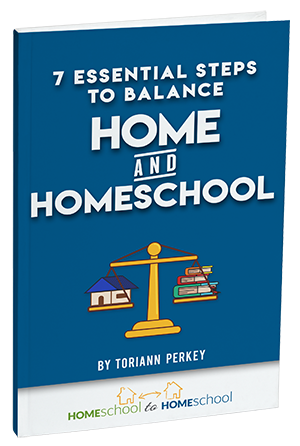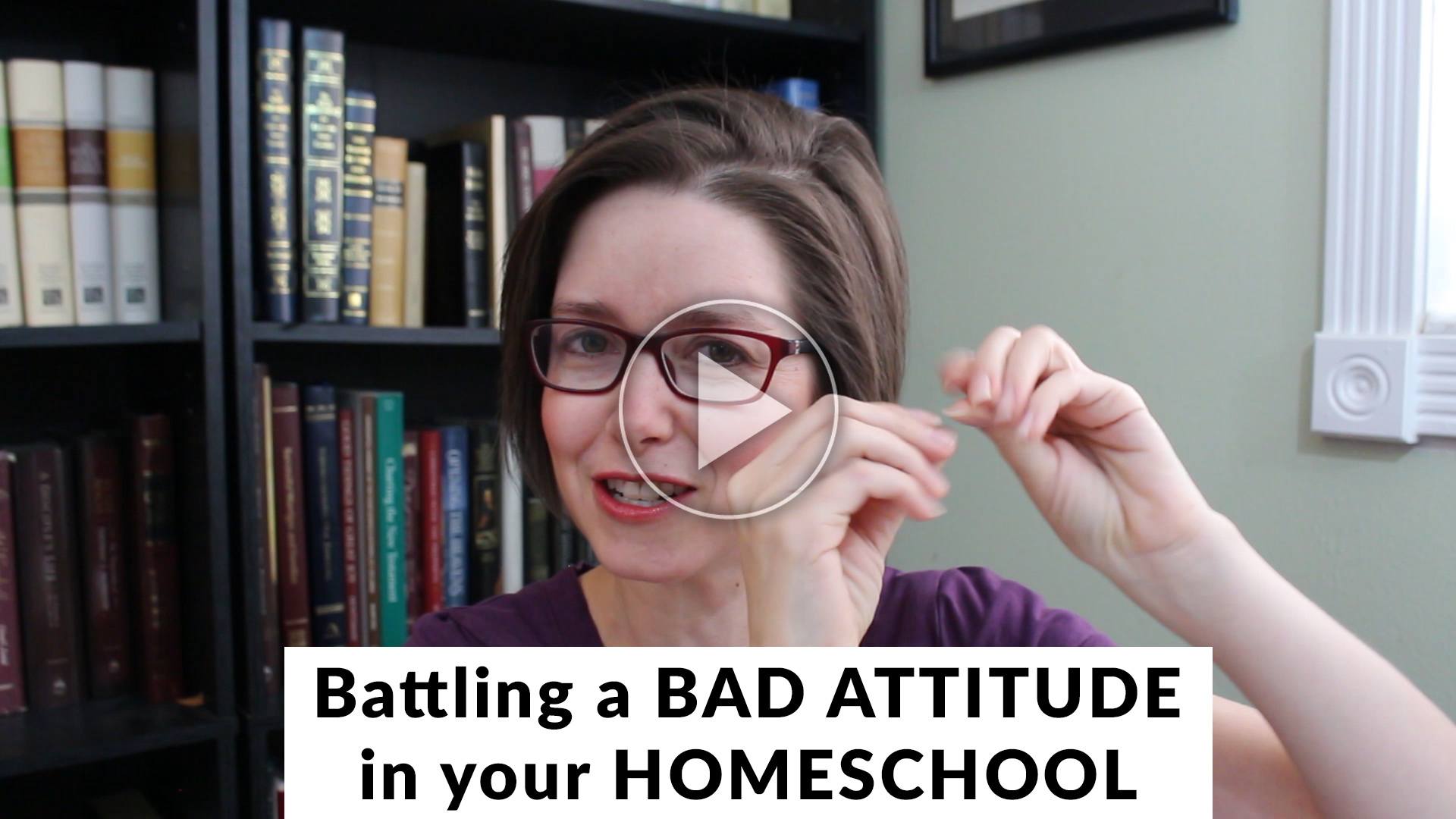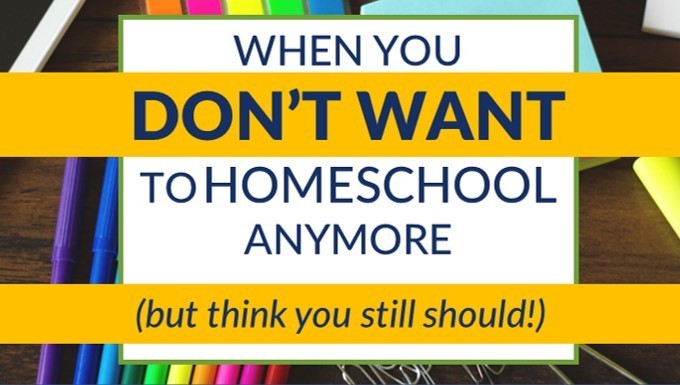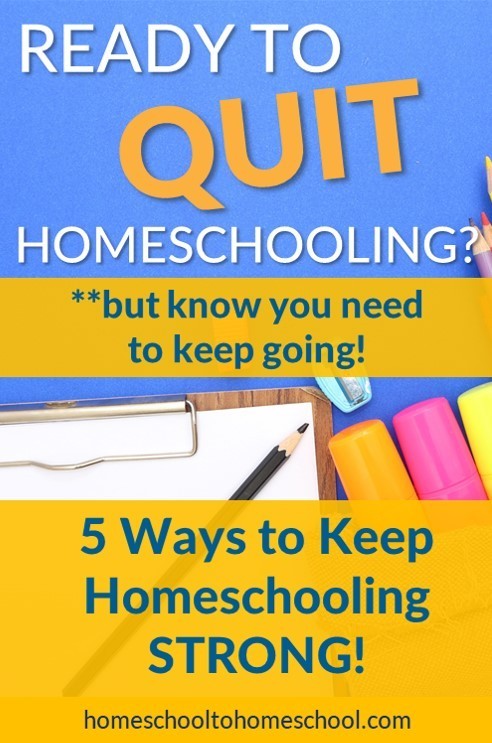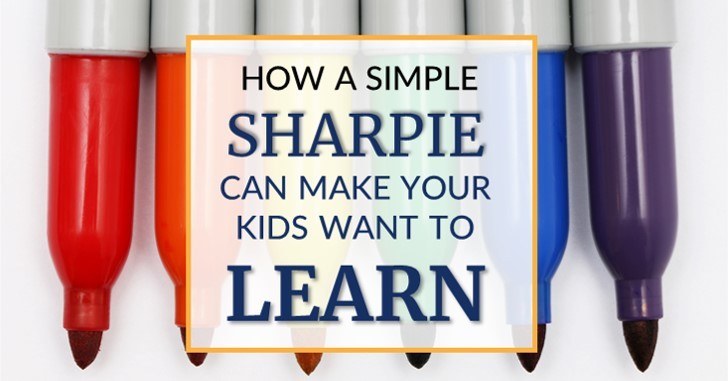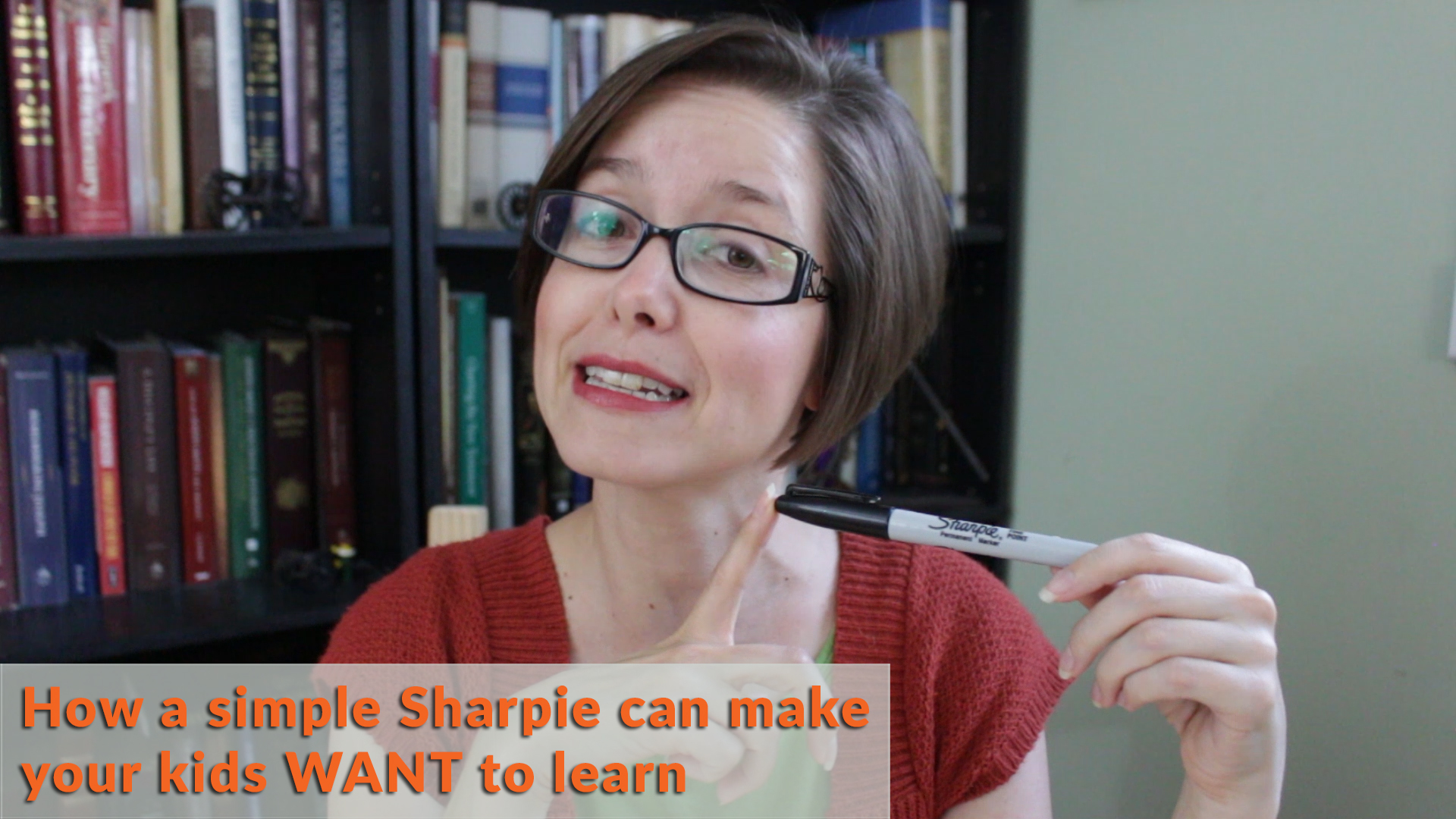And instead of gleefully going along with your plan, your kid will push back. They’ll be defiant. They’ll say “no.”
OR they’ll be passive aggressive and just sit there -- staring at you with a look that says, “I DARE you to make me learn anything.”
How do I know this??
I’ve seen so many different kinds of homeschool bad attitudes in my house. Maybe I’m just “lucky,” but my sense from talking to other homeschool moms is this is something that we all have to figure out in order to keep homeschooling successfully.
So what do you do?
How do you work with an uncooperative child and actually motivate them so they WANT to learn?
How do you work with your kid when they’re being defiant?
How do you fight the homeschool battle and win?
That’s what I’m talking about today. It’s not easy … but it is possible.
And if you get a few key things in place, you’ll find that you have fewer battles and more peace in your homeschool.
Want to keep reading instead of watch? Scroll to read a transcript of the video
Hello. My name is ToriAnn Perkey and from my homeschool to your homeschool, today we're gonna talk about how to battle a bad attitude in your homeschool. Do you have a homeschool kid who you just feel like has a bad attitude, they're grumpy, they're frustrated, and you're like, dude, just fix your attitude. This is going to get better. Well, this video then is for you. We're going to talk about how you battle those bad attitudes and help shift the energy in your home so it can be more positive.
Every family struggles with bad attitudes
And the first thing I want to say is you need to know, this is something every homeschool family struggles with because at some point, every kid's going to show up at some point with a bad attitude. And it happens all the time. It really, really does. And it can happen for all sorts of reasons and it can happen because you're having a bad day. It can happen because your kid's having a bad day, they're grumpy for some reason. It happens for all sorts of reasons. And so yeah, how do we battle this? How do we do this?
Well first, I just want to let you know I've seen it all, my kids, everything I'm about to tell you I have seen in my home. I've got four kids, I've been homeschooling for over 16 years. They are all teenagers. I have seen the bad attitude and what I'm about to tell you does actually make a difference. Okay? So first of all, let's talk about what bad attitudes look like. Because sometimes we just use these phrases and we don't get really clear on all the different ways a bad attitude might be showing up. Okay?
What does a bad attitude look like?
So you, a bad attitude can be a kid who's being sassy or rude. They're being disrespectful, they're talking back. That's a bad attitude. It can be a kid who is stonewalling you and just like giving you that stone cold face where they're refusing to do something and you say, I'd like you to do this. And they're just like, and they just stare at you. Like if I stare at you long enough, maybe you'll go away. That's “bad attitude”.
They might fall apart. So you ask them to do something and instead of working through it, their emotional regulation is so poor that they just, they throw a tantrum or they just start to cry and I'm not talking like tears of frustration and they're working through it. I'm talking about fall apart, can't handle it on the floor. It looks like a tantrum or maybe it just looks like a full on meltdown of other kinds.
It might also look like what I like to call “slothing,” where they just get super passive aggressive and they're doing it, but they're doing it really slow or they're doing it really sloppy. And it's this sort of like, "Well, you can make me do this, but you can't make me do it well", right. So these are all bad attitudes show up in life, lots of different ways and some are a little more subtle than others.So what do we do?
Recognize this is part of the human experience
Well, first we recognize that some of this is to be expected because our children are human and they are learning how to be mature adults. And bad attitude is something that takes time to work out of your system. I know adults who still have bad attitudes who still do all of the things I just listed, right?
So it's not like we just come onto this planet knowing how to handle hard situations, knowing how to interact with people. So sometimes battling the bad attitude has as much to do with me just recognizing that it is actually going to show up and not being frustrated that it's there.
It’s about agency and choice
Recognizing that it is part of my children's human experience and it is also going to show up because part of this human experience is about agency and choice. It's about letting our kids make choices because one of the reasons they're on this planet is to learn how to make choices. And if we don't give them the space to do that, they don't learn. And so human beings by nature want freedom.
They want choice. That is like, embedded in the DNA of a human being. And so your child is figuring out agency and choice. And one of the ways they do that is by pushing back against the things you ask them to do. Well, if they're pushing back, there are respectful ways to do that, but those often have to be taught well. They do.
Practicing their agency appropriately
They have to be taught. They have to be learned and practiced. Meanwhile, bad attitude shows up, and bad attitude can show up in a four year old. It can show up in a 16 year old and it will look different most of the time, but it's going to show up because it's them practicing their agency in inappropriate ways. We want them practicing their agency. We just want them learning how to do it in an appropriate way. So it's recognizing that this is actually something that's supposed to happen.
Some kids need more choice
Now, on top of that, it's also helpful to recognize that some kids just need more freedom and agency than others. They just, their little souls crave choice. And so if you have one of those kids, they're going to push back on everything. And often they'll do it in stronger and stronger and stronger ways. And you end up just doing this back and forth and back and forth as you're battling because this child's like, "I need to choose!" And you're saying, "I need you to do this." And so it becomes this battle, right? So recognizing that some kids need more agency and freedom can help you adjust your expectations of the bad attitude.
#1 Pick your battles
Okay. So with that, let's talk about a couple specific things that you can do to help make these battles less of a battle and more of a journey that you're taking together. The first one is to pick your battles, get really clear on what's important. Not everything is important. And if you pick all your battles, you won't win any of them. So decide what hill you're going to plant on. Decide which things are the most important and let other things go.
And depending on the kid you have, you may let a lot of things go that you normally would not let go. But you recognize that these things are the ones you're going to plant your flag on. That is the first thing. You gotta pick your battles and I have been amazed over the years at how many things I thought I had to hold on to that I really didn't. That didn't matter nearly as much as I thought they mattered and as I chose to let those things go, everything actually got better and not just because I was a pushover, but I was actually not fighting about everything. Okay.
#2 Set clear expectations
The second thing is to set clear expectations. A lot of battles can actually happen because we think a kid should just know what we want them to do. And then they're frustrated because they thought they were going to get to do something different or they thought a different level of doing it was going to be okay. And so that battle happens because the expectations aren't the same.
I've talked about this in other videos and I'm going to talk about it more because it is so key to just all human interaction, but anytime you have conflict, anytime you have this going on, it's because your expectation does not match your child's expectation and any time expectation doesn't meet reality, there's going to be conflict. There's going to be unhappiness. There's going to be something negative.
So with the clearer you can get on expectations, the better off you are and then you need to have ways to follow through when they don't meet those expectations which you have shared in advance is kind of bigger than I want to go into in this whole video, but this expectations thing is sharing. Super important.
#3 Don’t feed the monster
The third thing, and I just want to share today, is don't feed the monster. When your child starts to give you bad attitude and they start to push and they start to give you a hard time, it is going to trigger you. I don't care how calm you are, it's going to bug you because your agency, your human soul is not going to like it for all sorts of reasons.
And we're not going to go into all of those in this video, but you're not gonna like it and you're going to want to push back. And as you push back and they start to push back, it is going to bring up parts of you that maybe you don't like a whole lot that you don't like when they show up. Don't feed that monster. It is inside every single one of us.
Take a timeout, walk away, take a deep breath. There is almost nothing that your child is doing that requires immediate response. Almost everything can wait a little while till you've gotten to a place where you can respond and without the monster doing the talking. If you can do that, you will deescalate situations. It will not turn into this huge battle, but instead it will be something where you can actually be having rational conversations.
It’s really about motivation
That's some of the ways to navigate this bad attitude that shows up, particularly when you're trying to get your kids to do stuff in your homeschool and they don't want to do it. The reality is when we're trying to get our kids to do stuff, it's because we're trying to motivate them. We're trying to tell them, you need to do this and this and this because we want them to get things done.
We want them to be motivated and in an ideal world, they'd be motivated to do those things without all of these battles, right? So if that is something that resonates with you, if you're wrestling with how do I set clear expectations? If you're wrestling with how do I motivate my kids, I want you to check out a course I've put together, it's called The Motivation Formula. There's a link up above, down below, you know, wherever you're watching this video.
And the reason is, I've gone through and I've talked in detail and really help you figure out how to manage the agency of your child while still setting expectations and asking them to do things I've talked about. How do you know what to do with a kid who really holds onto their agency? I've talked about how do you set those clear expectations so that after you get all these pieces in place, your kids will want to learn.
They'll be motivated to learn on their own without begging, without bribing, without yelling. All those things that you're doing that possibly are creating these battles that you're trying to avoid and creating the bad attitude even though you're not trying to. Sometimes the bad attitude comes from how we show up and not just how our kids are. So if that's something that sounds interesting, be sure to check it out.
It's like I said, the links up above, down below. It's called The Motivation Formula and it's a course I've put together to help you with some of these things because the reality is bad attitude shows up in every homeschool. But successful and confident homeschools, the ones where the moms are able to consistently keep going, are the ones who figure this out without it turning into world war three. And hopefully some of the things I've given you today have been helpful. If so, please know that I make these videos every week, every week, so that you can be a successful and confident homeschool mom.
